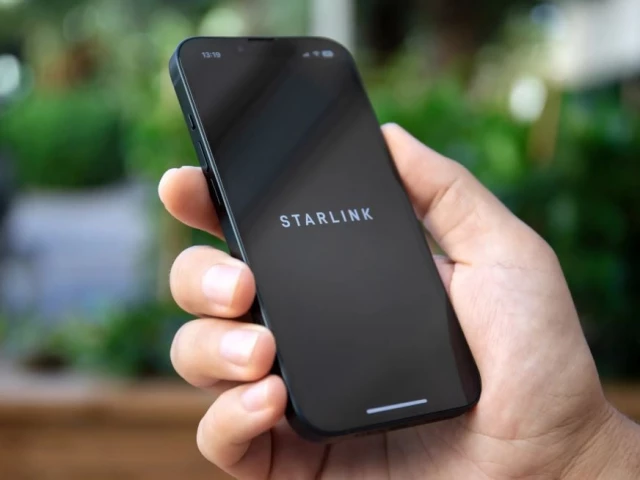SpaceX's Starlink set to test direct satellite-to-phone service
SpaceX to begin beta testing to start within few days, revolutionizing global connectivity

SpaceX is set to take its Starlink internet service to the next level with the upcoming beta testing of Direct-to-Cell (DTC) Starlink satellites, which will enable mobile phones to connect directly to cellular services almost anywhere on Earth.
This ambitious expansion follows the company's success in providing high-speed internet to over 4.6 million people across 118 countries through its constellation of nearly 7,000 satellites.
Launched in 2019, the Starlink project has already proven a game-changer, connecting users in remote and underserved regions worldwide. SpaceX’s low-Earth orbit (LEO) satellites, which operate at altitudes of around 550 kilometers, offer data speeds vastly superior to traditional geostationary satellites. The new DTC technology promises to bridge the gap for those in areas without cell towers, enabling vital communications like phone calls, text messages, and data transmission in even the most isolated locations.
The beta test, set to begin in just a few days, will see Starlink’s satellites work directly with mobile carriers to establish a link to phones, bypassing traditional terrestrial infrastructure. This breakthrough could be a lifesaver in emergency situations—imagine a person lost in the wilderness being able to use their phone to request help, regardless of how far they are from civilization. Additionally, the DTC feature could assist in navigation, with users accessing maps and data to safely find their way back.
The company’s bold move into global mobile connectivity follows several significant milestones. With the ongoing Russia-Ukraine conflict, Starlink has played a pivotal role in maintaining communication in the war-torn country, providing internet access without relying on local infrastructure. However, some nations have raised concerns about the service, citing issues related to local regulations and internet censorship.
With the forthcoming beta testing, SpaceX continues to push the boundaries of satellite internet and mobile connectivity, laying the groundwork for a future where global communication is not restricted by geography.
SpaceX is set to take its Starlink internet service to the next level with the upcoming beta testing of Direct-to-Cell (DTC) Starlink satellites, which will enable mobile phones to connect directly to cellular services almost anywhere on Earth.
This ambitious expansion follows the company's success in providing high-speed internet to over 4.6 million people across 118 countries through its constellation of nearly 7,000 satellites.
Launched in 2019, the Starlink project has already proven a game-changer, connecting users in remote and underserved regions worldwide. SpaceX’s low-Earth orbit (LEO) satellites, which operate at altitudes of around 550 kilometers, offer data speeds vastly superior to traditional geostationary satellites. The new DTC technology promises to bridge the gap for those in areas without cell towers, enabling vital communications like phone calls, text messages, and data transmission in even the most isolated locations.
The beta test, set to begin in just a few days, will see Starlink’s satellites work directly with mobile carriers to establish a link to phones, bypassing traditional terrestrial infrastructure. This breakthrough could be a lifesaver in emergency situations—imagine a person lost in the wilderness being able to use their phone to request help, regardless of how far they are from civilization. Additionally, the DTC feature could assist in navigation, with users accessing maps and data to safely find their way back.
The company’s bold move into global mobile connectivity follows several significant milestones. With the ongoing Russia-Ukraine conflict, Starlink has played a pivotal role in maintaining communication in the war-torn country, providing internet access without relying on local infrastructure. However, some nations have raised concerns about the service, citing issues related to local regulations and internet censorship.
With the forthcoming beta testing, SpaceX continues to push the boundaries of satellite internet and mobile connectivity, laying the groundwork for a future where global communication is not restricted by geography.



















COMMENTS
Comments are moderated and generally will be posted if they are on-topic and not abusive.
For more information, please see our Comments FAQ